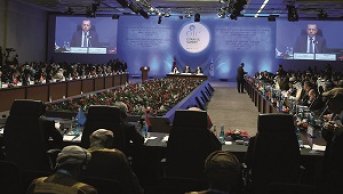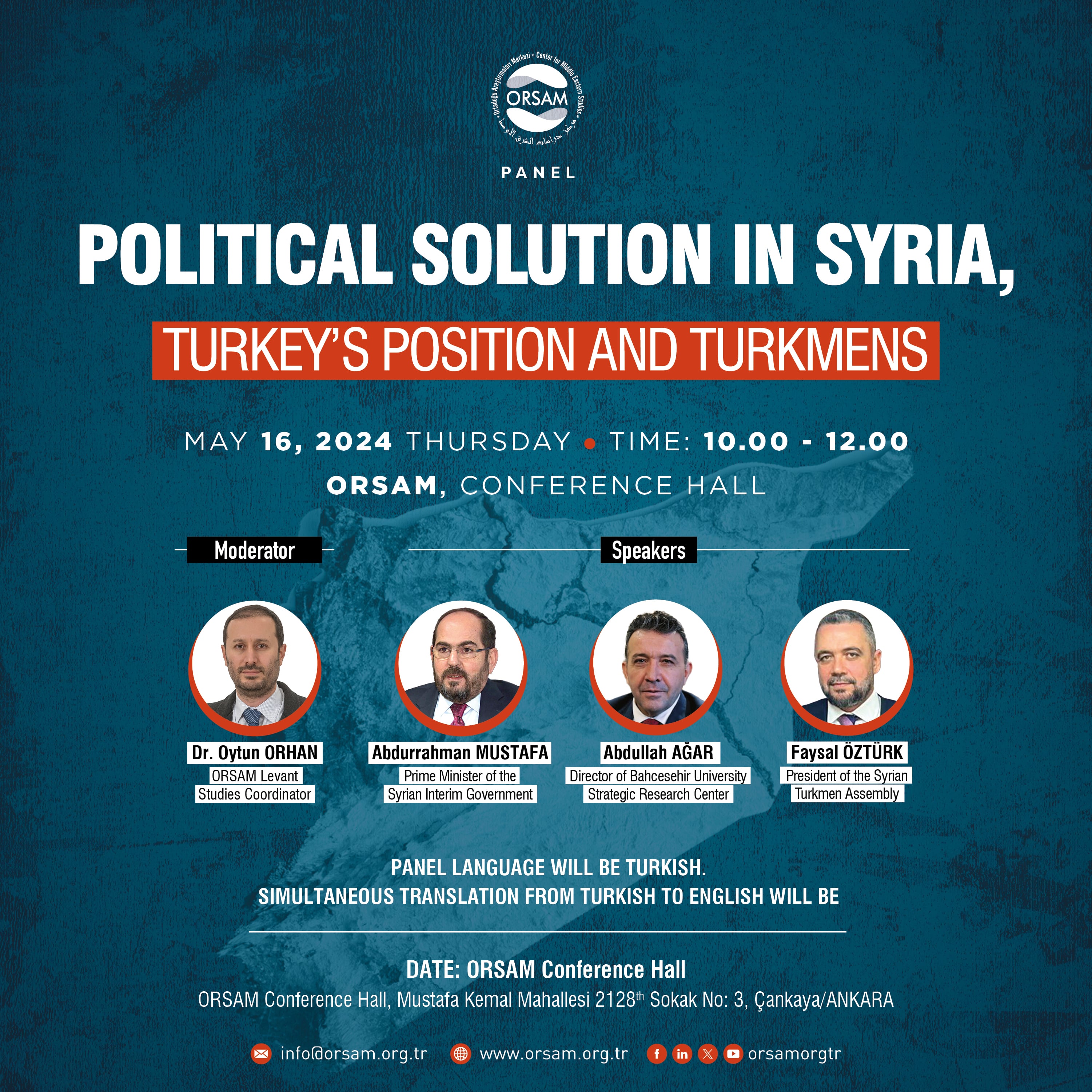German Policy Towards The PKK and The Kurds

Germany's long-lasting interest in the Kurds and their political and armed groups has been one of the topics heavily discussed in Germany, Turkey and in other countries where the Kurds live. Claims that Berlin has been supplying Kurdish Regional Government (KRG) that repels successfully the ISIS forces with heavy weapons and that those weapons are falling into hands of the PKK are among the topics high on the agendas of the relevant countries. Besides, it is noteworthy that Cemil Bayık, the co-chairman of KCK (Kurdistan Communities Union) apologized to the Germans for having organized offensives in Germany in the past and promised not to carry out such attacks. It is interesting that this statement came after Berlin started to consider changing its attitude towards the PKK, removing the organization from its terrorist list and allowing its activities in the home soil. Although the Federal Ministry of the Interior stated that Bayık’s remarks are not enough to lift the ban on the PKK, the significant support to PYD (an affiliate of the PKK in Syria) from Germany and other western countries marks the change in Berlin’s PKK policy and the gradual justification for the organization by Germany.
Bayık apologized to the Germans for their past activities during the discussions about lifting the ban on the PKK by Germany. This shows that the PKK leaders either do a tactical planning of time before taking steps or just fulfill the conditions of Germany for lifting the ban. It is hard to guess which motive explains the organization’s remarks better, yet it might be helpful to remember that this is not the first time the organization has paid close attention to its allies’ remarks. It is hard to answer for how long Germany will continue to remain dissatisfied after the PKK’s apologies for and promises of not to carry out attacks and whether it will ask the organization to cease fire in Turkey. In order to be able to answer those questions, it will be helpful to analyze the German policy towards the PKK and the Kurds in the recent past and the fundamental parameters forming the German policy.
The factors forming the German policy towards the PKK are as follows: the Kurds with a population of one million in Germany, PYD/PKK victories against ISIS that threatens the Middle East as well as Germany, primary goals of German foreign policies such as forming a 'backyard' in the Middle East in cooperation with the Kurds and using its new 'ally' to achieve its goals and lastly the consistent demands from members of the Greens (Grünen), the Left Party (Die Linke) and the Social Democratic Party of Germany (SDP) to conduct foreign policy respectful of human rights.
Some of the Kurds living in Germany consist of people from Iraq, Iran and Syria who took refuge in Germany for political reasons and most of them are of Turkish origin. The majority of the Kurds migrated from Turkey to Germany are guest workers, and there are also a great number of people who fled the rising conflicts in the Eastern Anatolia and Southeastern Anatolia Region in 1990s and took refuge in Germany after the 1980 Coup. This situation explains why most of the Kurds have been increasingly politicized compared to other migrant groups. Those politicized Kurds continued their rebellion in Germany against the governments of Turkey, Iraq, Iran and Syria. For this reason, the PKK came to be known globally when it carried out violent acts against the Turkish security forces and civilians in 1984. The PKK organized in Germany was able to find members without much effort among the politicized Kurds. What is more, it recruited new members even from Germans and other ethnic groups. In a very short time, Germany has become one of the most important countries in which the PKK provides human and financial resource for itself. Every year millions of dollars raised by the organization with various methods in Germany are known to be transferred to Turkey and Qandil. Besides, according to the Federal Office for the Protection of the Constitution (Bundesamt für Verfassungsschutz), the number of the PKK members in Germany rose to 7,000 in 1993 and 13,000 in 2013.
Even though Germany closed its eye to the organization’s activities before, it decided to ban the PKK on 22 November 1993 following the string of attacks to the Turkish diplomatic missions and workplaces. ERNK (National Liberation Front of Kurdistan), a political affiliate of the PKK in Europe was also banned alongside the PKK. European Union also defines the PKK as a terrorist organization. However, despite the ban on the organization, the PKK carries out its activities in the PKK affiliated associations under different names. In the second half of the 1990s, Turkey gained tremendous victories against the PKK and it is noteworthy that Syria, Greece and Germany rank among the top three countries which Turkey accuses of supporting the PKK. The fact that Germany has maintained the ban on the PKK until today, yet has not invested enough efforts to restrain its activities led to heavy criticism by the Turkish government.
One of the reasons that Berlin has not given much support to its NATO ally Turkey is the fear that the PKK might carry out attacks in Germany. German government warning the PKK not to continue in German soil the violent acts it carried out in Turkey, on the on hand takes the necessary measures such as banning the organization to prevent the violent activities from happening on its land. On the other, it tries not to be so tough on the PKK (secretly allowing them to be organized in multiple names and raise money) for fear that the PKK carries the violent acts to Germany.
The reason that Germany tries to be prudent against the PKK is about the overall policy Germany conducts towards the Kurds in the Middle East. Berlin, a global power dependent on Russian energy takes a special interest in the Middle East, which is abundant in energy sources. Merkel holds the Kurds as her leverage over the actors which are more difficult to manipulate in Ankara, Tehran and Baghdad. In this regard, Germany tries to improve relations with Iraqi Kurdistan by setting up a consulate general in Erbil as well as building better relations with PKK/PYD. Germany tries to create a zone of influence in the region by building good relations with these actors in search of international allies. Germany, in order to maintain good military relations with KRG, has been supplying Erbil with heavy weapons since September 2014 to prevent the advance of ISIS.
At this point, following questions are asked by different circles regarding this matter:
- Although the German government claims to deliver weapons to Iraqi Kurds to fight against ISIS, why does it send only military equipment apart from weapons to Baghdad government that also maintains a fight against ISIS and demands weapons?
- How is Berlin’s reaction to the fact that ISIS captured weapons sent to Iraqi Kurds?
- Does Germany’s support to the two organizations the PKK and PYD which are still in its terrorist list against ISIS mean that Germany regards them as legitimate organizations?
The second and third questions are of particular concern to Turkey, too and they mark the risks and drawbacks of German policy towards the PKK and the Kurds. Today, many western countries and Germany are very supportive of the PKK/PYD despite the uneasiness the organizations caused in Ankara. The support of the western countries for the PKK which is still in their terrorist list despite the fact that the PKK does not consider ending armed conflict against the NATO ally Turkey constitutes a major risk for the West, Turkey and the Kurds. This policy is risky in terms of Germany and the USA, because their purpose of creating a Kurdish state in the region will put some distance between them and Turkey, also given that Ankara will be worried about its security, this policy will have a bad effect on the economic relations between the West and Turkey. The risks that Turkey will face as a result of this policy are as follows: the relations between Turkey and the West might deteriorate and the PKK might give up the opening process executed with Ankara after the backing of the West. If the PKK acts accordingly, the organization itself and the Kurds will be more at risk than other actors in this regard. The recent history of the region and the Kurds shows that the Kurds suffered the most in the fight they maintained against regional actors relying on global actors’ support. For this reason, the PKK/PYD should not refuse to reach a consensus with regional actors like Turkey by relying on the West’s support. However, it is noteworthy that Germany has not always pursued the same policy towards the Kurds and the Kurdish problem in Turkey. For example, between the years 1998-2005, during Gerhard Schröder’s period in office, Germany paid more attention to the worries of Turkey, its important ally in terms of security and economy and followed a policy accordingly towards the PKK.
Berlin’s PKK and Kurds policy shift depends on the political influence of German people who want to carry out a foreign policy embracing the human rights. These influential circles managed to attract the German people’s attention and limit the arms sales to Turkey following the violations of human rights during the fight with the PKK in Turkey in 1990s. Coalition’s junior member, Free Democratic Party (FDP) in 1990s and the Greens and Left Party in 2000s put a lot of pressure on decision making mechanisms in this respect and tried to prevent Turkey from acting against human rights values while solving the Kurdish problem. Given that most of the politicized Kurds living in Germany are members of the Greens and Left Party, it is easy to understand why these political parties insist on acting from the perspective of human rights. It is also important to note that the Kurdish politicians who are also PKK sympathizers criticize mostly Turkish and Iraqi governments for their practices disrespectful of human rights. However, they are not interested in the violations of human rights by the PKK or the Kurds. Under these circumstances, bringing forward the violations of human rights by the Kurds falls to the politicians of other ethnic origins in the Bundestag. Critical statements by Omid Nouripour from the Greens during the interview by Die Zeit that KRG Peshmergas do not allow the Arabs within their regions to go back to their homelands might be given as an example in this respect.
This article was published in Ortadoğu Analiz journal with the title of "German Policy Towards The PKK and The Kurds”








